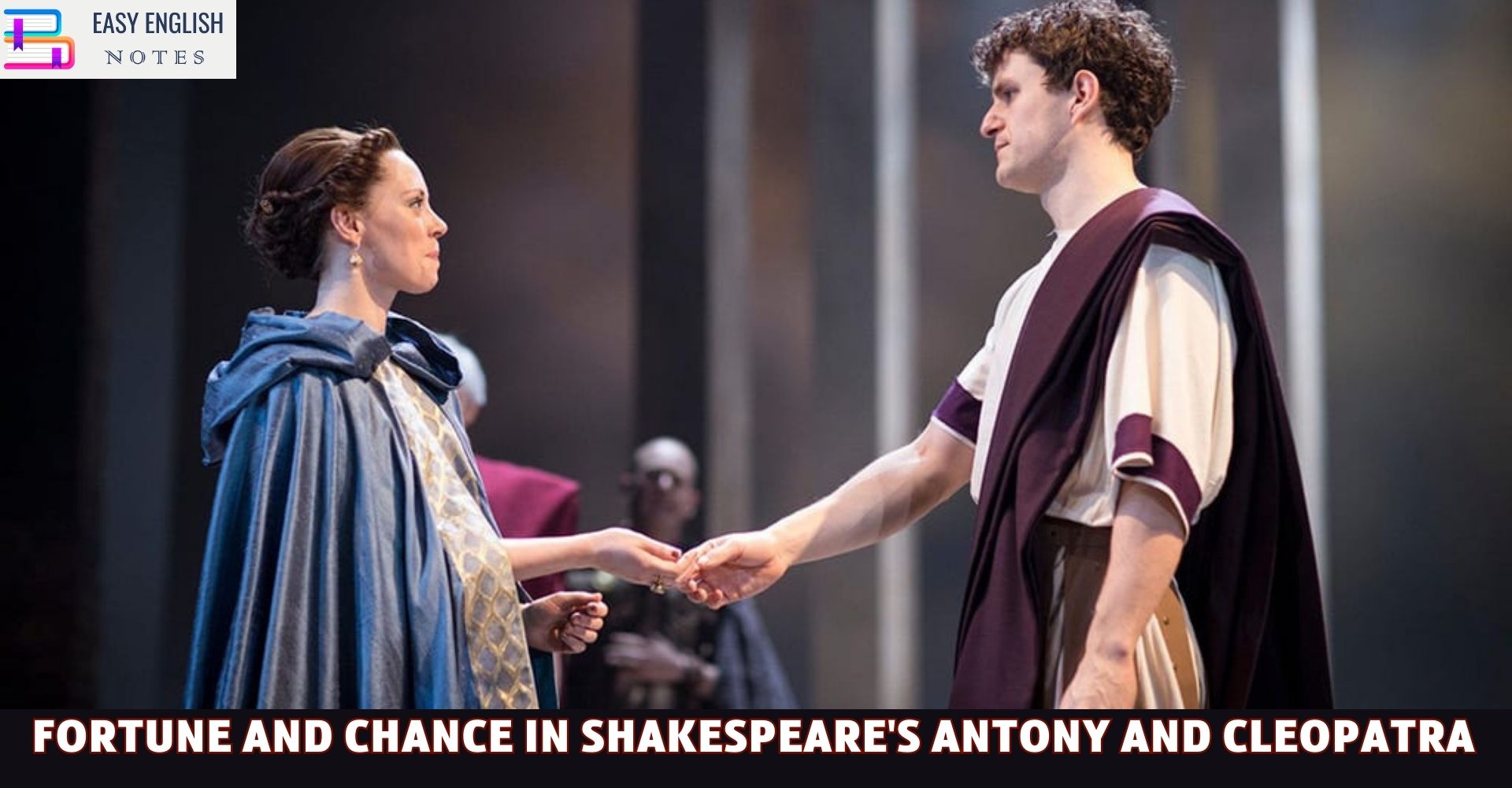Antony and Cleopatra, a renowned Shakespearean play, explores the concept of luck and fortune, presenting them as a complex “game” in which the characters partake. The notion of fate is intertwined with the idea of chance, as the character favored by fortune or chance at any given moment emerges as the most successful. Shakespeare employs elemental and astronomical imagery to represent fortune, evoking the characters’ realization of the unpredictable nature of the world. This raises questions about the influence of their actions on the ensuing consequences and whether they are subject to the whims of fortune or chance.
Antony eventually recognizes that he, like others, is merely a pawn of fortune, a card in the game of chance rather than an active participant. This realization implies his powerlessness in the face of chance or fortune. The characters’ handling of their luck holds great significance, as they can jeopardize their good fortune by recklessly exploiting it without considering the consequences, as Antony did. Scholar Marilyn Williamson suggests that they may squander their fortune by becoming too complacent, riding high on it, much like Antony neglecting his duties in Rome and indulging in his time with Cleopatra in Egypt. While fortune plays a significant role in the characters’ lives, they still possess the ability to exercise free will, as fortune is not as constraining as fate. Antony’s actions exemplify this, as he exercises his free will by capitalizing on his luck through his choices.
In parallel to the natural imagery used to describe fortune, scholar Michael Lloyd characterizes it as an elemental force that occasionally disrupts the natural order. This suggests that fortune is a force of nature surpassing human control or manipulation. The metaphorical “game of chance” played by fortune can be associated with politics, highlighting the characters’ need to navigate both fortune and politics to determine the victor. However, the culmination of the play reveals Antony’s realization that he is merely a card, not an active player in this game.
The motif of “card playing” carries a political undertone, reflecting the nature of political maneuvering. Caesar and Antony engage in actions against each other as if playing a card game, adhering to the rules of chance, which fluctuates in its favor from time to time. Although they may play political cards against each other, their successes are somewhat dependent on chance, indicating a certain limitation on their control over political affairs. Moreover, the frequent references to astronomical bodies and “sublunar” imagery imply a sense of fate associated with fortune, suggesting a lack of control on the part of the characters. While they do exercise some free will, their success in their endeavors ultimately hinges on the luck bestowed upon them by fortune. The movements of the moon and tides are often mentioned, such as Cleopatra’s declaration that, after Antony’s death, nothing of importance remains “beneath the moon.” Thus, the elemental and astronomical “sublunar” imagery intricately connects with the political manipulation enacted by each character, but the ultimate winner of the political “game” is partly determined by chance, an uncontrollable force to which they must submit.
Also Read :
- Compare Hamlet with Macbeth, Othello and other Tragedies
- “The Pardoner’s Tale” is the finest tale of Chaucer
- Prologue to Canterbury Tales – (Short Ques & Ans)
- Confessional Poetry – Definition & meaning
The play reaches its climax when Antony comprehends his insignificance in the grand scheme of things. He realizes that he is but a card in the deck, lacking agency as a player in this intricate game orchestrated by fortune. The motif of “card playing” carries a deeper political connotation, symbolizing the nature of political maneuverings and power dynamics.
Caesar and Antony engage in their political rivalry as if engaged in a high-stakes card game. They navigate the shifting tides of chance, which occasionally favors one over the other. However, their successes are not solely determined by their strategic moves but also rely on the capricious nature of fortune. This suggests that there are limits to their control over political affairs, as the unpredictable forces of chance exert their influence.
The recurring references to celestial bodies and “sublunar” imagery further emphasize the role of fate in the character of fortune. It implies that the characters have limited control over their destinies, despite their exercise of free will to a certain extent. While they can make choices and take actions, the ultimate outcome hinges on the fickle favor or disfavor of fortune. The movement of the moon and tides serves as a metaphorical reminder of the ebb and flow of fortune’s tide, shaping the characters’ paths.
Within this interplay of fortune and politics, the characters must skillfully navigate the intricate balance between chance and strategy to emerge as the victor. They are not mere spectators in this game, yet their agency is curtailed by the whims of fortune. The play, therefore, highlights the delicate dance between human ambition, calculated moves, and the ever-present element of chance.
In summary, Antony and Cleopatra present the concept of luck and fortune as a captivating game, wherein characters vie for success. The intermingling of fate and chance underscores the characters’ awareness of the unpredictable nature of the world. Antony’s realization of his subordinate role as fortune’s pawn reflects the limited control individuals have over the forces that govern their lives. The motif of card playing symbolizes the intricate political dealings, where success hinges on the interplay between strategy and the capricious nature of fortune. Through elemental and astronomical imagery, the play evokes a sense of destiny intertwined with the characters’ choices, emphasizing the delicate balance between human agency and the forces beyond their control.
PLEASE HELP ME TO REACH 1000 SUBSCRIBER ON MY COOKING YT CHANNEL (CLICK HERE)











